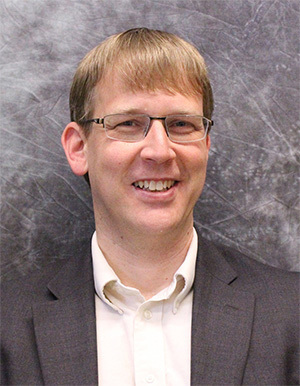"First principles studies of heterogeneous (electro)catalysis: incorporating structural complexity into catalyst reactivity and screening studies," by Jeffrey Greeley

Abstract
Advances in the theoretical understanding of interfacial catalysis have, over the past decade, enabled use periodic Density Functional Theory studies for screening of a surprisingly large ensemble of heterogeneous catalytic reactions at both gas/solid and liquid/solid interfaces. A significant challenge that has recently emerged in the field, however, is to extend these analyses to more structurally and mechanistically complex catalytic structures that cannot be described by traditional, idealized surface models. Successfully addressing this challenge, in turn, will require both developing realistic structural models for next-generation catalysts and finding strategies to analyze these structures in an efficient, high-throughput manner.
In this talk, I will begin by discussing how we have applied strategies from computational heterogeneous catalysis to screening of electrochemical catalysts for the classic oxygen reduction reaction, and I will then explore challenges in extending such screening studies to more structurally and mechanistically complex catalytic processes. I will illustrate some of these challenges through a detailed analysis of the catalytic activity of both the hydrogen evolution and water-gas shift reactions at metal/oxide interfaces, and I will close by illustrating how some of the insights gained from these studies might be extended to facilitate future catalyst screening studies on these fascinating molecular architectures
Biography
Prof. Jeffrey Greeley obtained his PhD from Department of Chemical Engineering at the University of Wisconsin-Madison in 2004. Following two years of postdoctoral work at the Technical University of Denmark, he moved to Argonne National Laboratory where he served for six years as a staff scientist in the Center for Nanoscale Materials before joining the Davidson School of Chemical Engineering at Purdue University in 2013.
Professor Greeley’s research group at Purdue focuses on the use of first principles Density Functional Theory calculations to understand chemical processes at surfaces and interfaces. His primary interests are in the areas of heterogeneous catalysis and electrocatalysis, and his work has led to the prediction and successful testing of improved electrocatalysts for electrochemical reactions of interest in fuel cells and electrolyzers. He has published over 130 research articles in this field.
Seminar sponsored by the Department of Chemical and Biomolecular Engineering